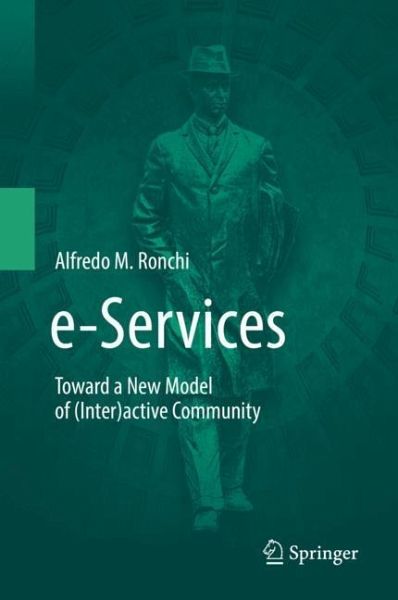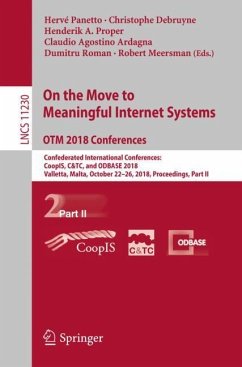
e-Services
Toward a New Model of (Inter)active Community

PAYBACK Punkte
25 °P sammeln!
This book explores various e-Services related to health, learning, culture, media and the news, and the influences the Web and related technologies have had and continue to have in each of these areas, both on service providers and service users. It provides insights into the main technological and human issues regarding healthcare, aging population, recent challenges in the educational environment, the impact of digital technologies on culture and heritage, cultural diversity, freedom of expression, intellectual property, fake news and, last but not least, public opinion manipulation and ethi...
This book explores various e-Services related to health, learning, culture, media and the news, and the influences the Web and related technologies have had and continue to have in each of these areas, both on service providers and service users. It provides insights into the main technological and human issues regarding healthcare, aging population, recent challenges in the educational environment, the impact of digital technologies on culture and heritage, cultural diversity, freedom of expression, intellectual property, fake news and, last but not least, public opinion manipulation and ethical issues. Its main aim is to bridge the gap between technological solutions, their successful implementation, and the fruitful utilization of the main set of e-Services mostly delivered by private or public companies.
Today, various parameters actively influence e-Services' success or failure: cultural aspects, organisational and privacy issues, bureaucracy and workflows, infrastructure and technology in general, user habits, literacy, capacity or merely interaction design. This includes having a significant population of citizens who are willing and able to adopt and use online services; as well as developing the managerial and technical capability to implement applications that meet citizens' needs. This book helps readers understand the mutual dependencies involved; further, a selection of success stories and failures, duly commented on, enables readers to identify the right approach to innovation in areas that offer the opportunity to reach a wide audience with minimal effort.
With its balanced humanistic and technological approach, the book mainly targets public authorities, decision-makers, stakeholders, solution developers, and graduate students.
Today, various parameters actively influence e-Services' success or failure: cultural aspects, organisational and privacy issues, bureaucracy and workflows, infrastructure and technology in general, user habits, literacy, capacity or merely interaction design. This includes having a significant population of citizens who are willing and able to adopt and use online services; as well as developing the managerial and technical capability to implement applications that meet citizens' needs. This book helps readers understand the mutual dependencies involved; further, a selection of success stories and failures, duly commented on, enables readers to identify the right approach to innovation in areas that offer the opportunity to reach a wide audience with minimal effort.
With its balanced humanistic and technological approach, the book mainly targets public authorities, decision-makers, stakeholders, solution developers, and graduate students.














